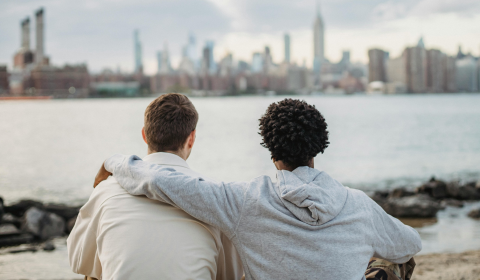With the ceaseless growth of AI since 2022, conspiracies surrounding the so-called ‘Dead Internet Theory’ have grown stronger. First thing’s first, though, what the hell is it and does it have any credibility?
Is this an online rabbit hole worth getting lost in? Is it pure storm in a teacup? Did a human even write this article? So many questions.
If you spend any significant amount of time on Twitter (X) or Reddit, chances are you’ve already seen something about ‘Dead Internet Theory’.
Arising from the tendrils of 4Chan around eight years ago from origins hard to pinpoint, the theoretical concept is that bots usurped the presence of people on the internet in the 2010s.
The belief is that the vast majority of internet traffic, social media posts, and users have been replaced by a faceless digital army and that people no longer shape the direction of the world wide web.
Hence, as us mortals give way to the machines and their inorganic content, the internet is described as ‘dead’. That’s the short version anyway. Thanks ChatGPT.
all of the replies to big posts are unrelated clickbait spam. this has been the case for months
— Lewis (@ctjlewis) January 11, 2024
The use of porn bots to suppress critical thought on X is entirely in keeping with the moral decline of the West.
— Johnny miller (@johnnyjmils) April 17, 2024
Evil governments and corporations
The longer version is way more fun, though, so let’s get into that.
The real conspiracy part stems from the idea that humans deliberately spearheaded efforts to get us here. AKA government agents have unleashed bots to diminish our presence, invade algorithms, and manipulate the human population for all the evil plots they can muster.
A 2021 thread titled ‘Dead Internet Theory: Most of the Internet is Fake’ – published on forum site Agora Road’s Macintosh Café – describes raising the bot invasion as the ‘setup’, with the ‘thesis’ part basically lamenting the US government for the ‘gaslighting of the entire world population.’
The ceaseless rise of AI since 2022 and its industry-wide integrations has served only to heighten the cynicism of these suspicious folk.
Comments sections are ruined for all of us when AI-generated promos and bot accounts take over and ignore all relevancy of the original post, but some believe companies actually want bot accounts generating engagement for other bot accounts whilst we scroll through an eerie, vacant echo chamber.
This constant glut of ‘creator-less’ content is colloquially referred to as AI ‘slime’ – because our feeds are covered!
Thought this was an edit but lmao https://t.co/PNjG7CA26u pic.twitter.com/mgS52q9DIp
— Ed Zitron (@edzitron) January 12, 2024




















